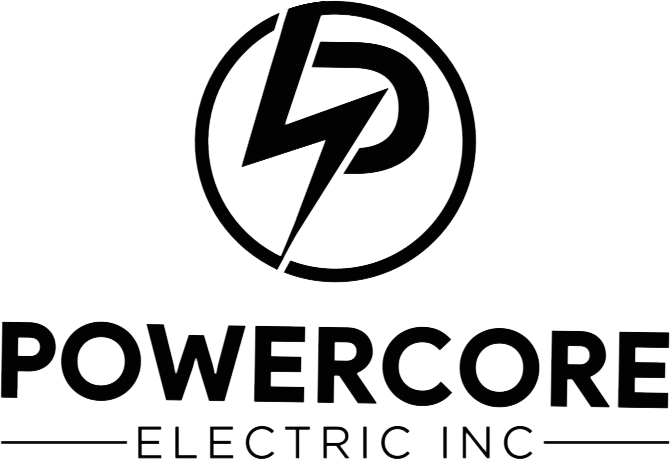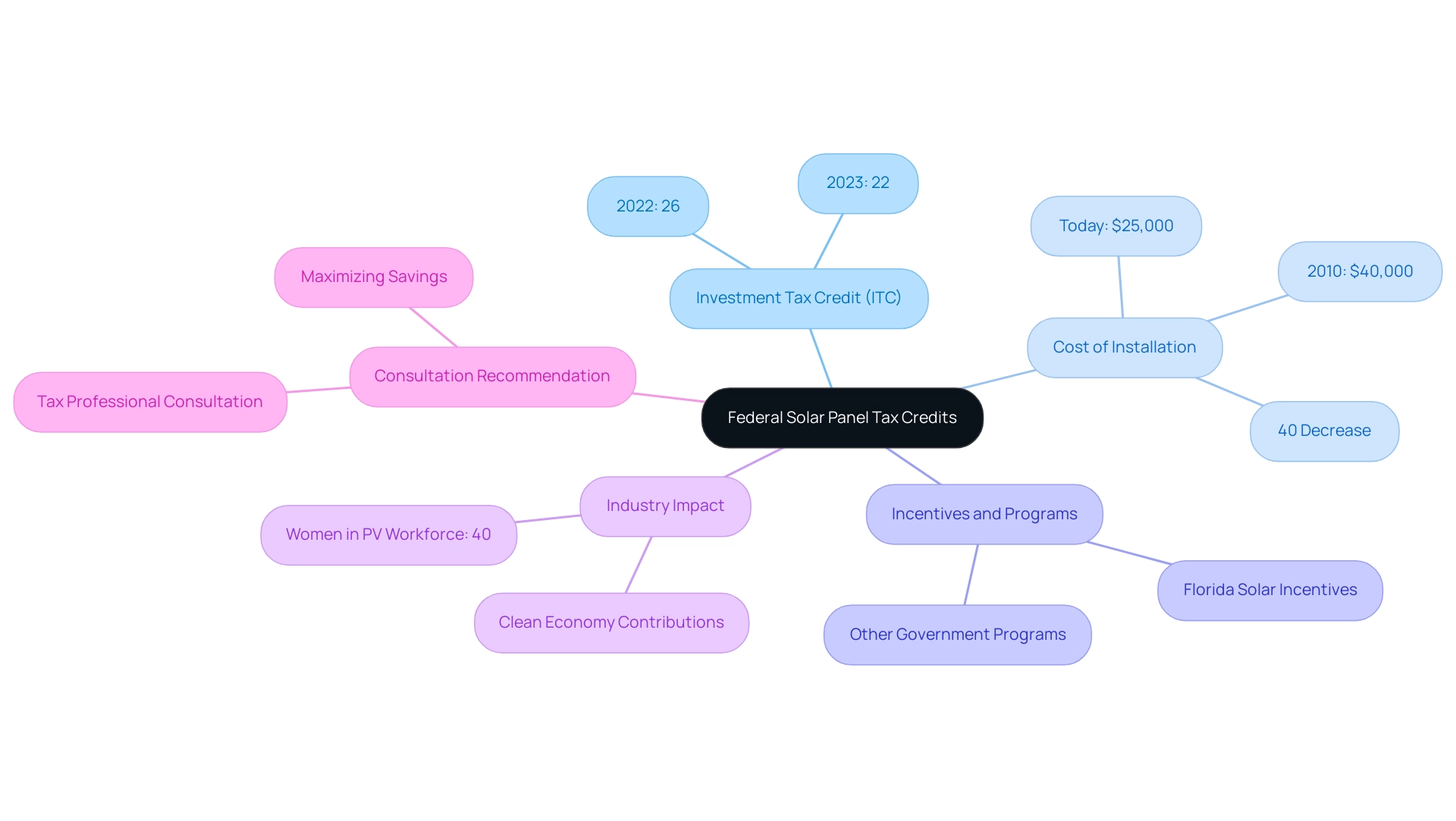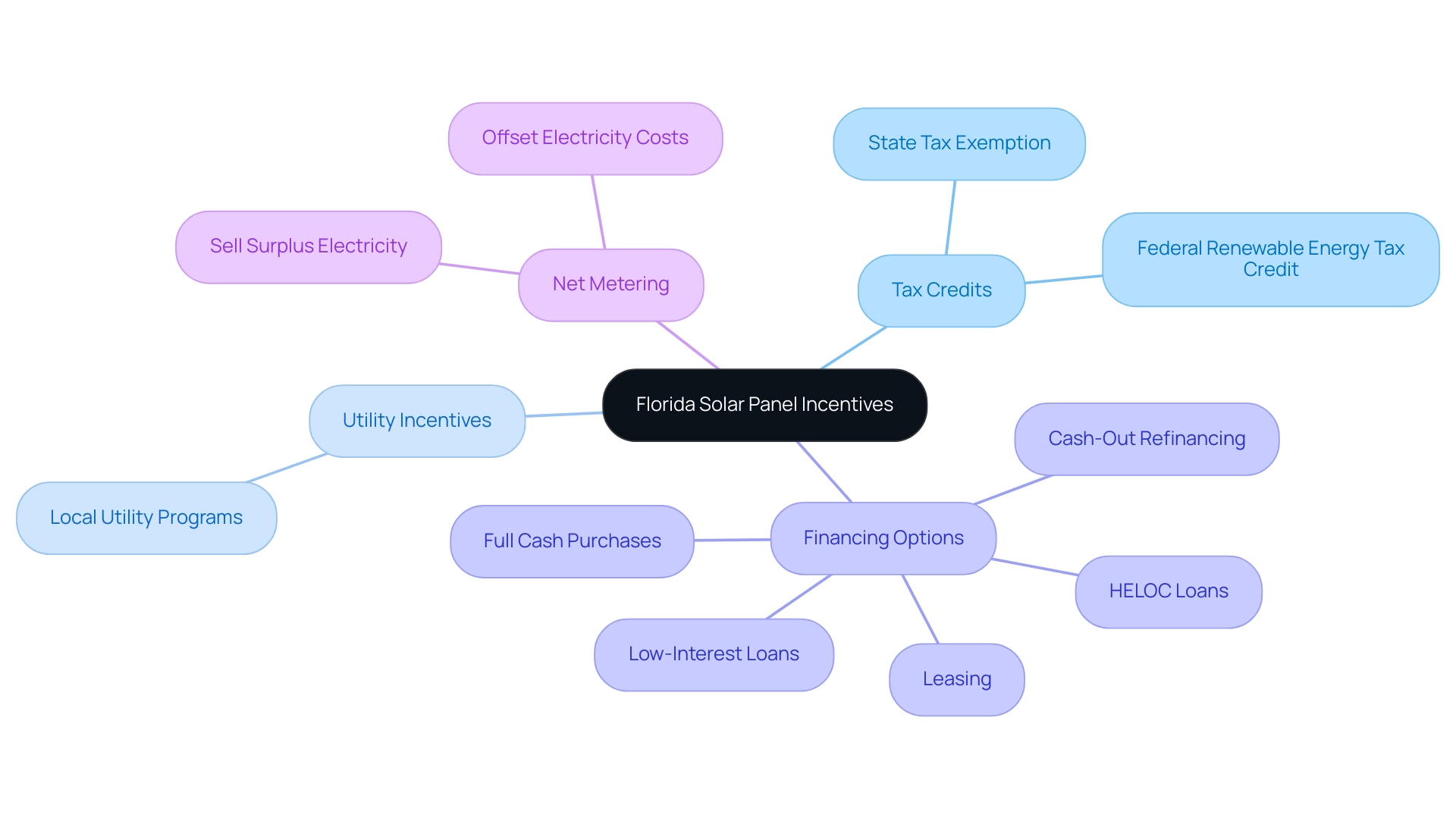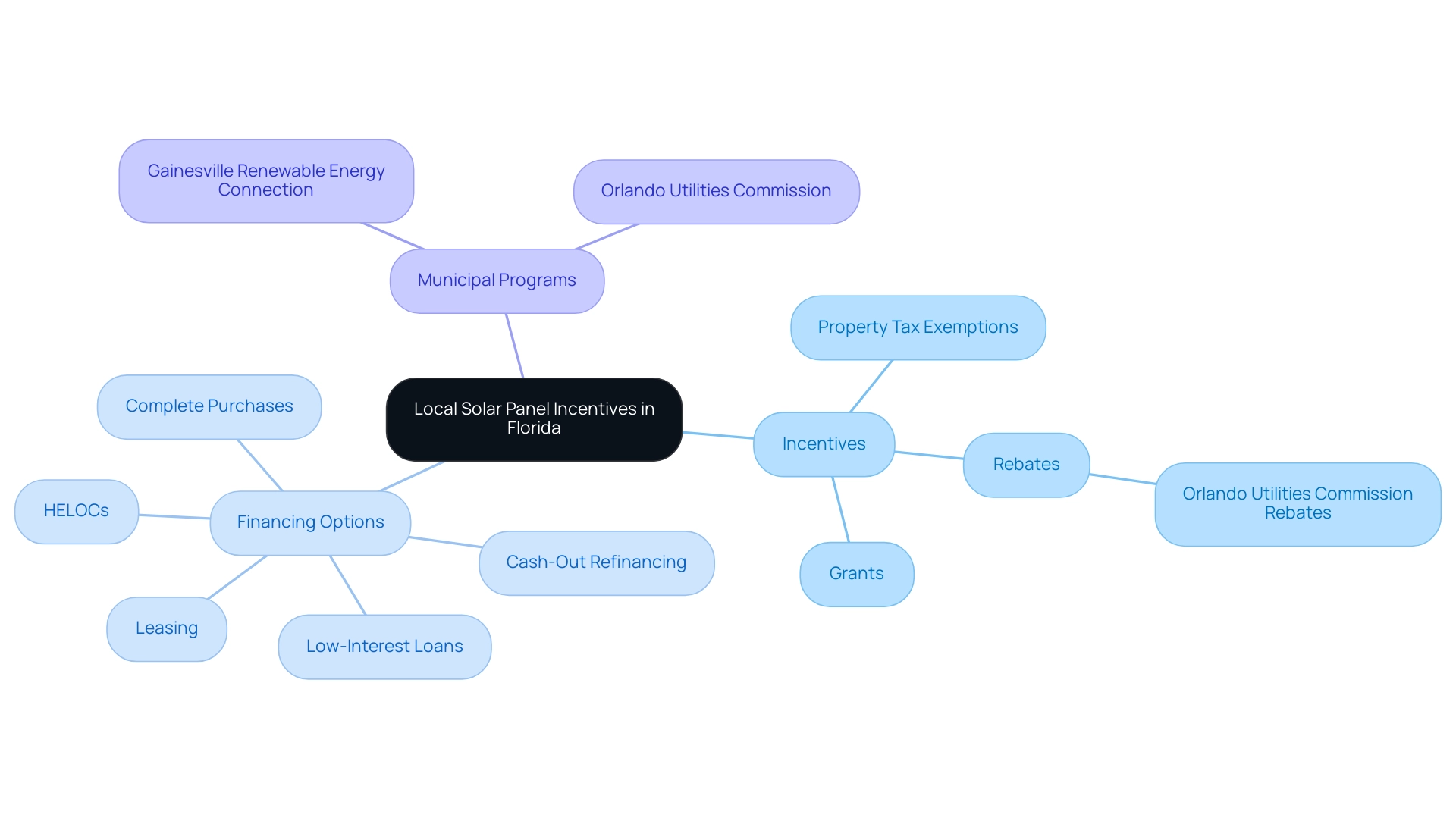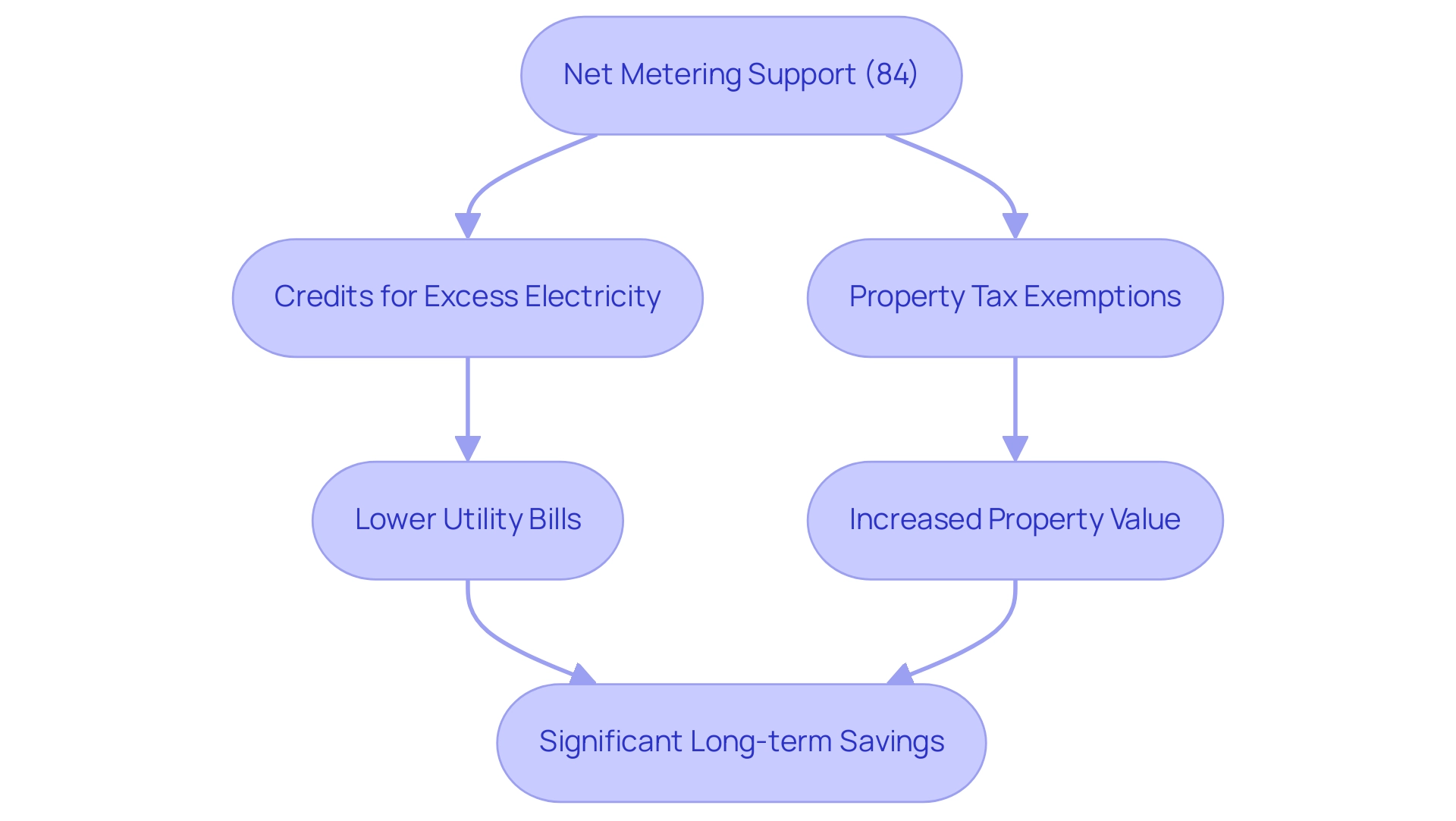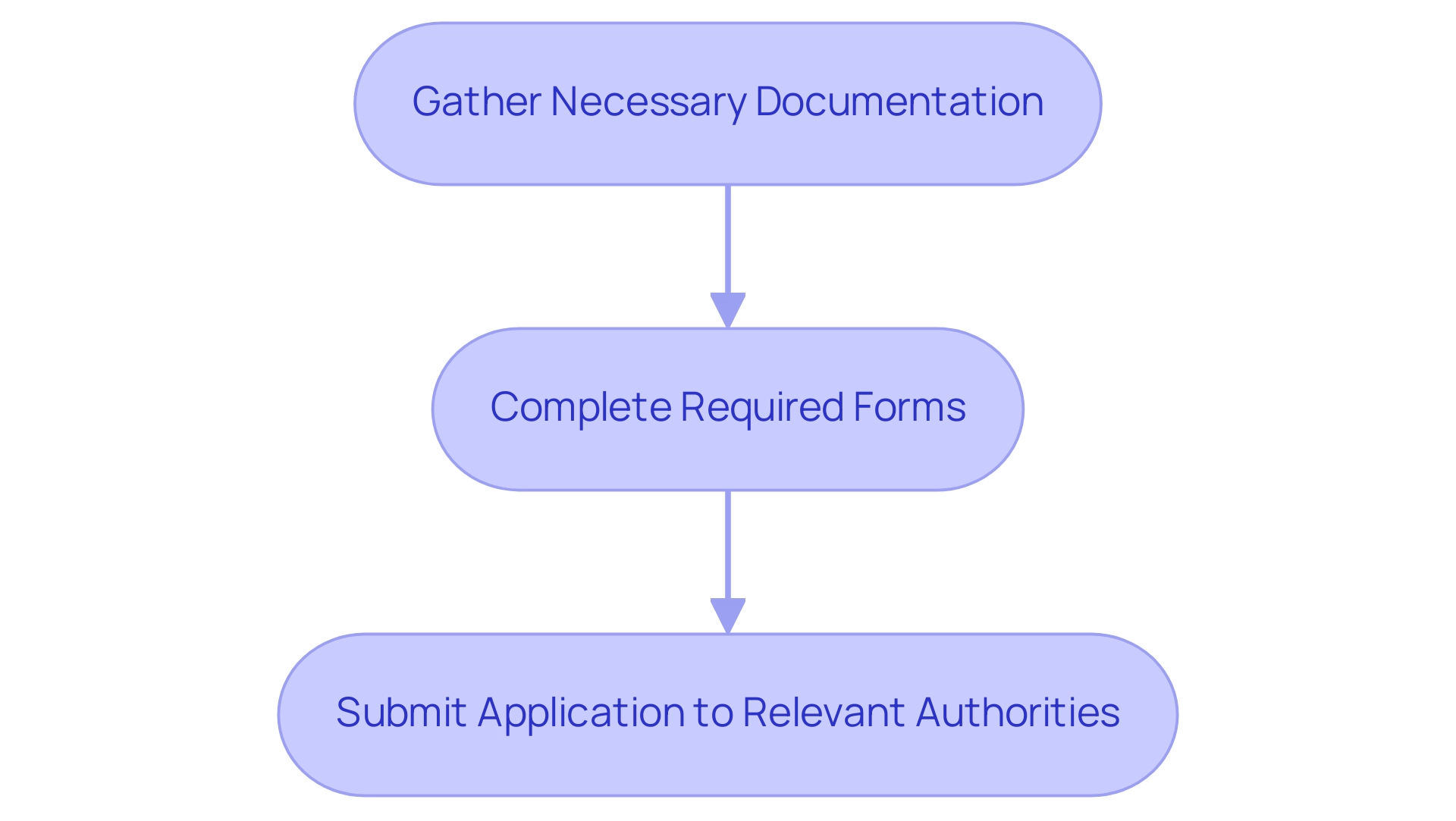Introduction
With the push for renewable energy growing stronger, homeowners are increasingly looking towards solar power as a sustainable option that not only benefits the environment but also their wallets. The federal solar investment tax credit (ITC) is a game changer, allowing homeowners to significantly reduce their installation costs while contributing to a cleaner future. In Florida, the opportunities expand even further with state-specific incentives and local programs designed to make solar energy more accessible.
From net metering to property tax exemptions, understanding these financial benefits can transform the way homeowners view their energy consumption. This article delves into the various solar incentives available, providing essential insights for those ready to embrace solar energy and enhance their homes.
Overview of Federal Solar Panel Tax Credits
The federal investment tax credit (ITC) offers an excellent opportunity for eco-conscious homeowners seeking to invest in renewable energy. This credit permits you to subtract a substantial portion of your panel setup expenses from your federal taxes, rendering it an essential financial factor. For those who completed installations in 2022, the credit stood at an impressive 26%, but it will decrease to 22% in 2023.
Moreover, the cost to install photovoltaic systems has dropped by nearly 40% over the last decade, with average residential system prices falling from $40,000 in 2010 to approximately $25,000 today. This wider financial context emphasizes the availability of renewable power for homeowners. Significantly, the ITC isn’t solely for residential setups; it also pertains to commercial renewable systems, highlighting its importance in any financial assessment related to the adoption of alternative power.
In addition to the ITC, homeowners should explore solar panel incentives in Florida and other government programs that can further reduce installation costs and provide additional benefits. It’s also crucial to consider the incorporation of Tesla home chargers and high-quality battery options, which can enhance efficiency and sustainability. Furthermore, the ITC has contributed to a stronger and cleaner economy, with women comprising almost 40% of the total workforce in the PV industry, aligning with the values of homeowners who support inclusive industries.
To maximize your savings and fully grasp how these credits can impact your specific situation, consulting with a tax professional is a wise move. With the proper guidance, you can maximize this opportunity, aiding in a cleaner, more sustainable future while enjoying the financial advantages of renewable resources.
Exploring Florida’s Solar Panel Tax Credits and Rebates
Homeowners in Florida can take advantage of solar panel incentives Florida to enhance their properties while saving money through the Florida Solar and Energy Conservation Tax Exemption. This exemption ensures that the added value of your photovoltaic panels won’t increase your property taxes, making it a smart financial move for those considering renewable energy. As our amiable specialist Liam McCabe mentions, ‘And of course, there’s the federal renewable energy tax credit, too, which reduces the expense of setup considerably,’ contributing to the financial advantages.
Many utility companies in the state provide solar panel incentives Florida for renewable energy installations, offering even more reasons to make the switch. Be sure to connect with your local utility providers to discover the specific rebate programs available in your area, as these can differ widely. Furthermore, Florida homeowners can explore various options to pay for photovoltaic panels, including:
- Leasing
- Low-interest loans
- Full cash purchases
- HELOC loans
- Cash-out refinancing
By understanding solar panel incentives in Florida and the potential for net metering—where homeowners can sell surplus electricity back to the grid at the full retail rate—residents can maximize their savings while making a positive impact on both their finances and the environment. Additionally, investing in renewable energy solutions not only saves money but also protects your home through roofing improvements and energy storage options. Embrace the power of sunlight and protect your home today by exploring our comprehensive services!
Local Solar Panel Incentives Across Florida
In Florida, local municipalities are stepping up to support eco-conscious homeowners interested in panel installations by offering a variety of incentives, such as grants and property tax exemptions. It’s essential for homeowners to explore the specifics of their county or city programs, as these initiatives can vary significantly. For instance, Gainesville stands out with its innovative energy incentives, including the Gainesville Renewable Energy Connection program, which can greatly benefit residents eager to harness renewable energy.
Engaging with your city or county offices can uncover unique opportunities, ensuring you make the most of the resources available to you. Additionally, the Orlando Utilities Commission provides valuable rebates for energy-efficient upgrades and low-interest loans specifically for photovoltaic installations, further enhancing the appeal of transitioning to renewable energy. Notably, if you produce more energy than you use over a 12-month period, utilities are required to compensate you, making renewable installations even more appealing.
As Florida Power & Light emphasizes, moving away from pollution-producing sources not only contributes to cleaner air but also supports local families in their power needs. The shift from coal to renewable sources is anticipated to remove over 500,000 tons of carbon dioxide and supply power to as many as 14,000 residences, emphasizing the economic and ecological advantages of heating systems utilizing sunlight. This community-driven method to harnessing sunlight is a fantastic way to invest in a sustainable future while potentially reducing on power expenses.
Moreover, Florida homeowners can select from various financing alternatives for renewable energy systems, including:
- Leasing
- Low-interest loans
- Complete purchases
- HELOCs
- Cash-out refinancing
This flexibility empowers you to choose a payment method that best fits your financial situation, making the transition to renewable energy more accessible than ever. For those seeking guidance, user manuals and comprehensive guides on how photovoltaic panels operate and their maintenance can offer valuable insights to ensure a smooth installation process.
Financial Benefits: Net Metering and Property Tax Exemptions
Net metering is a fantastic way for eco-conscious homeowners with solar panels to take advantage of solar panel incentives in Florida and turn their sunlight into savings. It allows you to earn credits for any excess electricity your system generates and sends back to the grid, meaning you only pay for the net energy you consume. This can lead to significantly lower monthly utility bills.
A recent poll revealed that 84 percent of voters in the state support net metering, showcasing its popularity among homeowners. Additionally, both Duke Energy and FP&L permit unused generation credits to roll over to the next billing period, maximizing your savings potential. On top of that, solar panel incentives in Florida include property tax exemptions for those who install photovoltaic panels, ensuring that any increase in property value from your investment doesn’t lead to higher property taxes.
This combination of net metering and property tax exemptions can result in impressive long-term savings. And don’t forget about the added benefits of a solar-plus-storage system! By installing a battery system, such as the Tesla Powerwall or LG Chem RESU, instead of sending your excess electricity to the grid, you can store it and significantly decrease your dependence on grid power.
These batteries provide features such as high storage capacity and efficient energy management, making them excellent options for maximizing your investment. So, if you’re considering switching to renewable energy, now’s the time to act—especially before 2024—to maximize these financial perks and secure your savings. Delaying installation could mean missing out on the current net metering rates, significantly impacting your financial benefits.
Embrace the future of energy with photovoltaic and storage solutions for both economic and environmental benefits!
How to Apply for Solar Incentives in Florida
If you’re considering applying for energy incentives in Florida, it’s essential to first familiarize yourself with the range of incentives available from both the federal and state governments. Solar panels work by converting sunlight into electricity, which can then be used to power your home or be sold back to the grid. Begin by collecting essential documentation, such as proof of purchase for your panels and setup contracts—these are vital for your application.
For example, in Boynton Beach, you can benefit from a $1,500 rebate for the installation of qualifying panel systems, which can significantly reduce your expenses. When it comes to federal tax credits, remember to complete IRS Form 5695 during tax filing; as of May 7, 2024, staying informed about any updates to this form is vital to maximizing your benefits. Moreover, the state’s net metering policy enables residents to sell any excess photovoltaic electricity back to the grid at the full retail rate, assisting in further lowering electricity expenses.
For state-specific incentives, checking with the Department of Revenue can provide you with any additional forms or requirements you might need. To streamline your application process, follow these steps:
- Gather all necessary documentation
- Complete the required forms
- Submit your application to the relevant authorities
Don’t forget to reach out to your local utility companies; they often have rebate programs that could save you even more.
Staying organized and informed will make a world of difference in ensuring you make the most of all eligible incentives. As Peter Butler, a Senior Editor with 18 years of editorial experience, puts it, ‘Understanding the landscape of available incentives is key to making the most of your energy investment.’ Also, be mindful of the regulatory challenges surrounding solar power purchase agreements (PPAs) in Florida, as these could affect your financing options for solar installations.
With the right approach, you can turn the sun into savings!
Conclusion
Embracing solar energy is not just a smart financial decision; it’s also a significant step towards a sustainable future. The federal solar investment tax credit (ITC) provides homeowners with a substantial opportunity to offset installation costs, making solar power more accessible than ever. Coupled with Florida’s unique incentives like property tax exemptions and utility rebates, homeowners have an array of options to maximize their savings while enhancing their property value.
Moreover, understanding the benefits of net metering can transform the financial landscape for those investing in solar. By earning credits for excess energy generated, homeowners can significantly reduce their electricity bills. The combination of financial incentives, local programs, and innovative financing options empowers residents to make informed choices that align with their economic and environmental goals.
As the solar landscape continues to evolve, now is the perfect time to seize these opportunities. With the right knowledge and support, homeowners can not only invest in their homes but also contribute to a cleaner, greener community. The journey to solar energy is filled with potential rewards, making it an exciting prospect for anyone looking to make a positive impact on their household and the planet.
